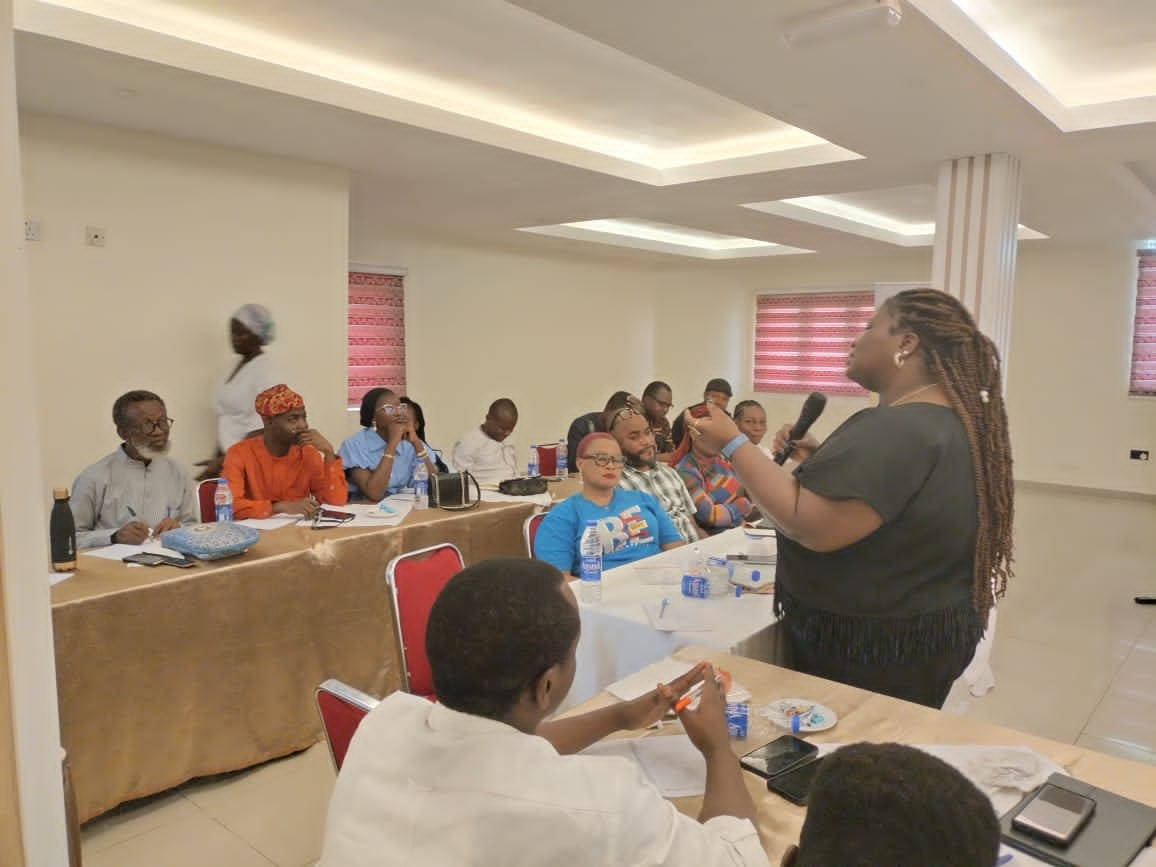By Abdkareem Idris
A group, Vision Spring Initiative, VSI, has called on journalists to advocate against Gender-Based-Violence and promote gender equality in the society.
While speaking at a Workshop on Wednesday, in Lagos with the theme “Intersectionality of Rights in Media Reporting”, the Guest Speaker, Omolara Oriye emphasized on the importance of the media in reporting and documenting Sexual Reproductive Health and Right, SRHR.

She noted that in the advocacy for gender indiscrimination, no one should be left behind as the media must assume a more active role in the prevention of violence against women while urging them to help change the negative and retrogressive cultural norms in the society.
“My work with the media is to ensure that the media does what is required in terms of reporting, informing and educating the community and public about SRHR as women focus on intersex to ensure that identity is taken into cognisance and also the representation of these identities in the media in terms of stopping the stereotype and the bias that can become a thing in the reporting of SRHR of women.”

She also urged that media as educationist should not just be made the centre of stories in SRHR, but advocate more on gender equality and be a catalyst of change in the society.
According to her, intersectionality is understanding that there is more than one way to view the world hence, identity is an important part of intersectionality.
Oriye stated that a lot of young women who learnt about sex through violence, rape tend to be blamed by the society because women issues are generally regarded as less important.
“There is the importance of women to have bodily autonomy to make decisions over their body. We cannot discuss SRHR without understanding that there is an agency issue and that this agency issue must be looked at through an Intersectional lens.
“We understand the identity of these women and how these identities in terms of the absence of SRHR interact with the system of oppression to compound their experiences.”

Oriye, who noted that the larger percentage of teenage pregnancy is as a result of the elderly ones who raped the children, advocated that media personnel should not just move to end teenage pregnancy, but that the perpetuators of such evil act be brought to book.
She added that in Nigeria, gender relations are characterized by unequal power relations which are dominated within a culture of shared beliefs, customs, values and behaviours and as such women and girls face violations and discrimination of their Sexual Reproductive Health and Rights within the culture.

